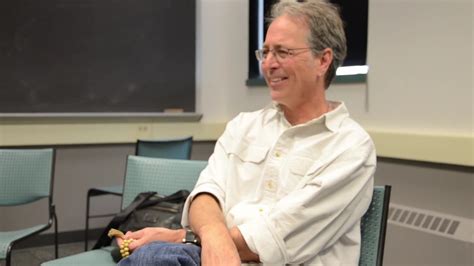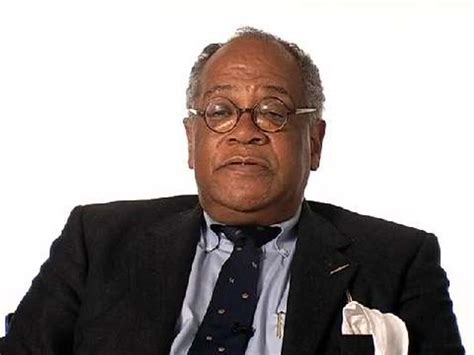A Quote by Sam Richards
My students often ask me, 'What is sociology?' And I tell them, 'It's the study of the way in which human beings are shaped by things that they don't see.'
Related Quotes
I don't think there's one right way to do anything. There's no one best way to be a woman. There's no best way to be a mentor. I'm just trying to be me and be authentic and live my truth and be as inclusive and interested in other human beings as possible. I'm an actor by training, which means that I study human beings and human behavior. That's what I try to do and what I love to do.
I don't ask my students to have studied film or any education in general. What I ask them is to come and sit and tell me a story, and the way they choose it and tell it, for me, the best criteria for whether they are right for making films. There's nothing more important than being able to tell your story orally.
Not that I ever felt the necessity of proving that all human beings suffer the same way, feel joy the same way, but it happened on my way - when I get close to these people, just by the simple intervention of translation I can actually reach them and ask them something, and their reaction is as I expected. I see that the relationship goes so smoothly, and I realize that cultural languages and specificities are nothing but simple obstacles that you can easily overcome. It's obvious that human beings are the same wherever they are.
The way forward does not lie in amateur and comically timeless linguistic sociology which takes 'forms of life ' for granted (and this is what philosophy has been recently), but in the systematic study of forms of life which does not take them for granted at all. It hardly matters whether such an inquiry is called philosophy or sociology.
Most people don't put things together. Geologists study the surface of the earth and geological phenomena. Meteorogists study the weather. That isn't science. Science is the study of all things that affect human beings. They have to be together! A meteorologist has difficulty talking with a sociologist, because they don't understand each other. You can't teach sciences in 'bits'; you have to bring it all together. Science is a way of thinking - a way at arriving at conclusions without your own opinion in it.
One of the things that I tell beginning writers is this: If you describe a landscape, or a cityscape, or a seascape, always be sure to put a human figure somewhere in the scene. Why? Because readers are human beings, mostly interested in human beings. People are humanists. Most of them are humanists, that is.
I would say that the fundamental question of geography is about how humans shaped the Earth's surface and how we, in turn, are shaped by the ways in which we have shaped the Earth's surface. So, for me, geography was just a set of tools that allowed me to ask these kinds of questions and to try to think through them.
If the government doesn't fund education, which they often don't, students are going to stay home and not go to school. It affects them directly. But I'm really not interested in writing explicitly about that. I'm really interested in human beings, and in love, and in family. Somehow, politics comes in.
In my mind, the purpose of education is to enable human beings to develop to their full potential, intellectually and spiritually. That means that students have to be empowered to pursue self-knowledge and the skills that will help them be of service to their fellow human beings. Education should encourage people to develop their curiosity about life; above all, it should not trivialize either the students or their lives.
The question should not be 'What would Jesus do?' but rather, more dangerously, 'What would Jesus have me do?' The onus is not on Jesus but on us, for Jesus did not come to ask semidivine human beings to do impossible things. He came to ask human beings to live up to their full humanity; he wants us to live in the full implication of our human gifts, and that is far more demanding.
People study martial arts for many reasons, sometimes all the wrong reasons. For example, I have had potential students come to my dojo with a belligerent and cocky attitude. When I ask why they want to study my art, their response has indicated to me that their goal is to learn to fight, which is the antithesis of the philosophy I hope to instill: I want them to know how to defend themselves if necessary, but to avoid fighting whenever possible because they will have nothing to prove by fighting.
There was no name for the disease; his body had gone insane, forgotten the blueprint by which human beings were built. Even now the disease still lives on in his children. Not in our bodies, but in our souls. We exist where normal human children are expected to be; we're even shaped the same. But each of us in our own way has been replaced by an imitation child, shaped out of a twisted, fetid, lipidous goiter that grew out of Father's soul.





































